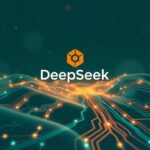Ever felt like the AI world is only accessible to those with mega-bucks for hardware and data? I stumbled upon an interesting piece on VentureBeat that got me thinking – and it’s about how DeepSeek is changing that game.
The headline says it all: “Rethinking AI: DeepSeek’s Playbook Shakes Up the High-Spend, High-Compute Paradigm.” Basically, DeepSeek is showing that you don’t necessarily need a mountain of cash and endless computing power to make serious AI advancements.
What’s particularly interesting is the idea that DeepSeek accelerated these advancements. The article suggests they brought forward what would eventually happen anyway, maybe by a few years. In a field moving at lightning speed, that’s a HUGE deal!
It made me reflect on the barriers to entry in AI. We often hear about the massive investments in training these models. For example, a study by OpenAI suggests that training large language models can cost millions of dollars. It’s easy to feel like innovation is locked behind a paywall.
DeepSeek’s approach gives hope to smaller players, researchers, and even AI enthusiasts who want to contribute without needing a supercomputer in their basement. Their specific methods aren’t fully detailed in the article, but the implication is that clever algorithms and efficient data usage can make a big difference. This is not just good news for budget-conscious innovators; it’s also potentially good news for the environment, as reduced compute needs translate to lower energy consumption. According to a University of Massachusetts Amherst study, training a single AI model can emit as much carbon as five cars in their lifetimes.
So, what does this all mean? It suggests we’re heading towards a more democratized AI landscape, one where ingenuity and smart strategies can level the playing field.
5 Key Takeaways From DeepSeek’s Approach:
- Innovation isn’t solely about resources: Smart algorithms and efficient data usage matter just as much.
- Smaller players can compete: DeepSeek’s playbook offers hope for those without massive budgets.
- Faster progress is possible: Their work shows that advancements can be accelerated.
- Sustainability matters: Reduced compute needs can lead to a greener AI ecosystem.
- Democratization of AI: More people can contribute to and benefit from AI advancements.
This article makes me excited about the future of AI, a future where more people can get involved and contribute. It’s a future where a company’s creativity, not just their capital, drives progress.
FAQ: DeepSeek and the Future of AI
-
What is DeepSeek doing differently? DeepSeek is finding ways to achieve significant AI advancements without relying on the enormous computing power and data sets that have become typical.
-
Why is this important for people in Cameroon? A more accessible AI landscape means more opportunities for local talent to develop AI solutions relevant to our specific challenges and needs.
-
Does this mean big tech companies are now irrelevant? Not at all. Large companies will likely continue to play a significant role. However, DeepSeek shows that smaller companies can be impactful too.
-
What are some specific areas where AI advancements could benefit Cameroon? Agriculture, healthcare, education, and small businesses could all benefit from AI-powered solutions.
-
How can I learn more about DeepSeek’s specific methods? While the VentureBeat article doesn’t detail their methods, you can explore DeepSeek’s website and publications for more technical information.
-
Is this trend towards more efficient AI good for the environment? Yes, absolutely. Reduced compute needs translate to lower energy consumption and a smaller carbon footprint.
-
What are the risks of AI becoming too democratized? There are concerns about misuse and bias in AI. Ensuring ethical development and responsible use is crucial, regardless of who is developing the technology.
-
Will this mean AI development will become faster? DeepSeek’s example suggests advancements can be accelerated when clever strategies are prioritized.
-
How can universities in Cameroon get involved in this new AI landscape? Universities can focus on teaching efficient algorithms, data optimization techniques, and ethical AI development to empower the next generation of AI innovators.
-
What is the future of AI looking like? The future of AI is becoming more accessible, more sustainable, and more diverse. It’s an exciting time to be involved in the field!








